People Who Witnessed A Loved One Die Shared What They Wish They Had Known Beforehand, And It’s Heartbreaking But Necessary To Hear
Content warning: discussions of death and dying.
In case you missed it, a video by @hospicenurseulie, a hospice nurse who educates about death and dying, went viral for teaching people about the actively dying phase, which is the last phase of life. We then talked with Julie, who helped us better understand end-of-life symptoms and care.
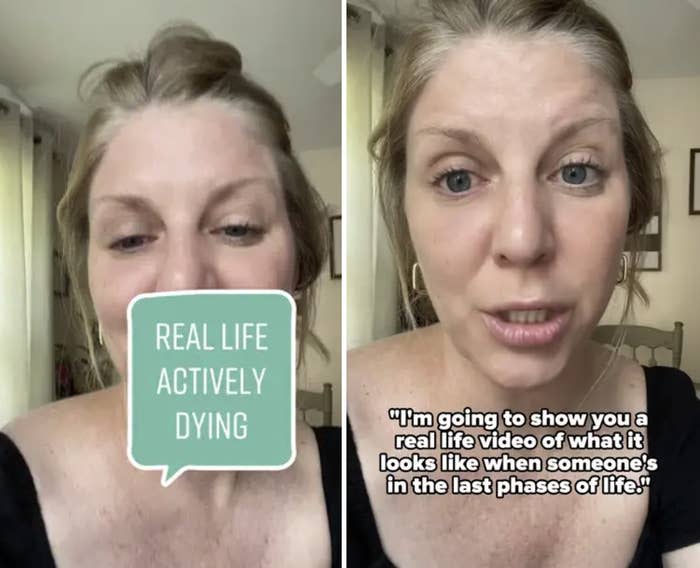
Julie taught us about the symptoms someone in the actively dying phase might experience that are regularly shocking for loved ones, but completely normal — like the death rattle, the "rally," end-of-life visioning, and "fish-out-of-water" breathing.
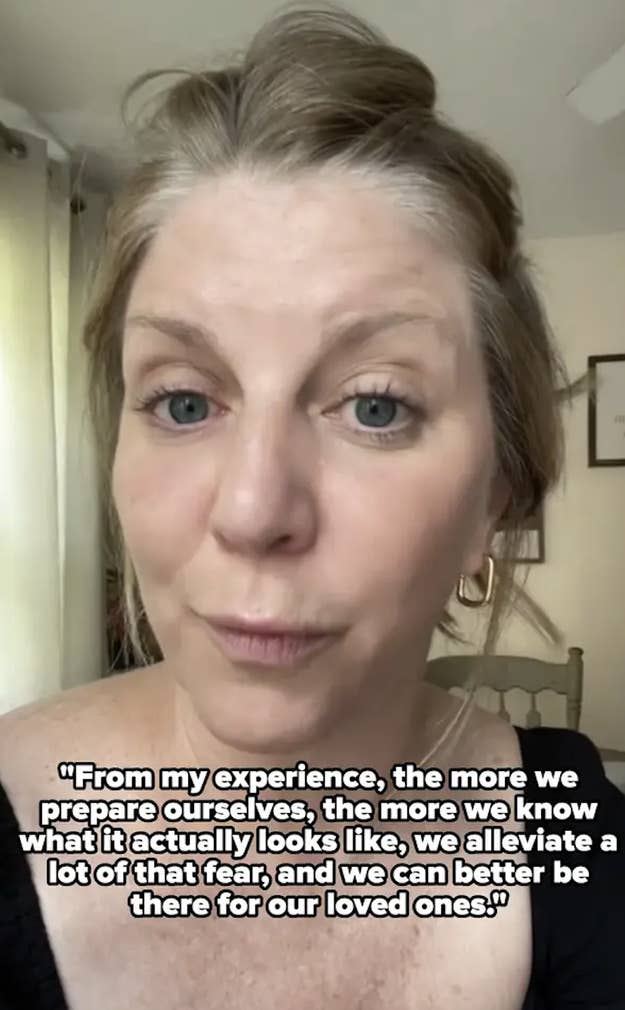
Julie's insight has helped millions better understand the final stages of life and end-of-life care. Julie often says that through education, we can alleviate fear around death and can better be there for loved ones in their final days.
Still, despite death being a commonality in all our lives — we all experience loss — talking about death can feel scary and taboo. It's like we push off the conversation to protect from the inevitable. Then, when a loss happens, we are confused, lost, and sometimes feel like we have no one to turn to because it's never quite felt a part of normal conversation.
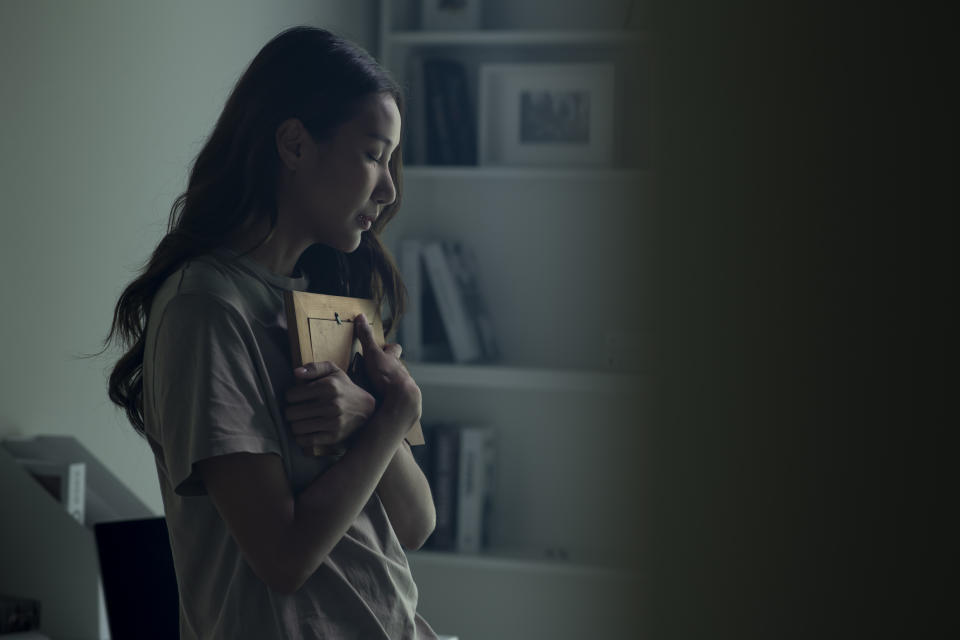
To start some conversation, and admittedly understand some of my own grief better, I asked members of the BuzzFeed Community to share the things they wish they understood before witnessing the loss of a loved one. Their answers both devastated and completely shocked me. I felt the conversation about loss normalizing. I understood the loss of a loved one better. I also felt less alone in my own experiences.
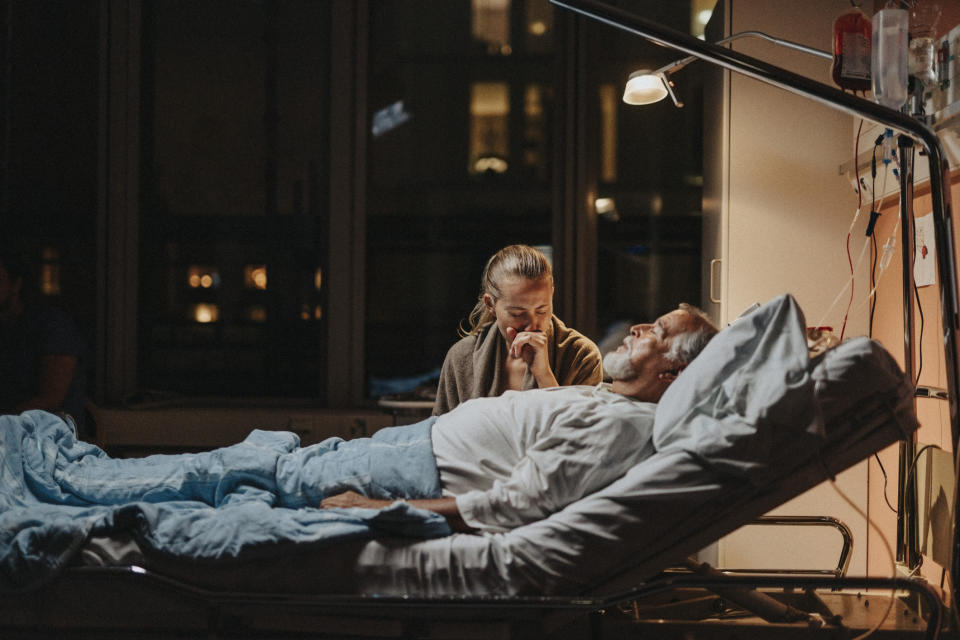
Their answers provided moments of great connectivity, but also great hardship. I encourage you to read through, but also do so lightly and if you need to, take a break. Here's what everyone shared:
1."I wish I knew how accurate doctors are. My mom was dying and we knew she didn't have much time, so I came home for the week and stayed with my sister. We get a call from the hospital at like 2 a.m. saying we should get to the hospital as she'll probably die soon. We get there, wait for her to wake up, and she was fine. I didn't realize some people rally right before death. She died the next morning in her sleep."
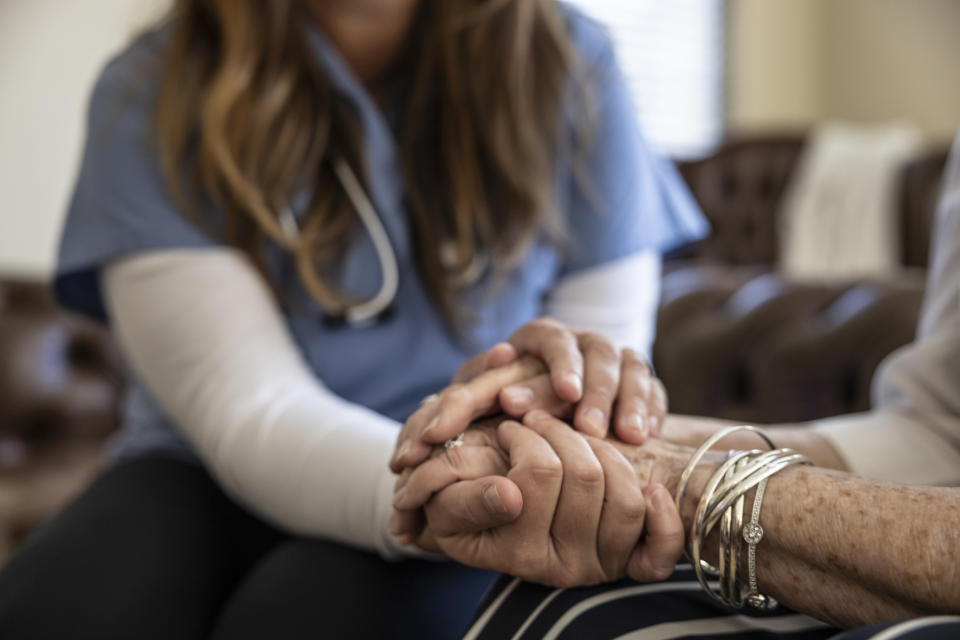
2."It was not made clear to me that there were things like the rally, the death rattle breathing, hallucinations, constipation, and reaching out to almost talk to others not the room. Basically these things were going to happen regardless and that it was part of the experience. Normal. I had no clue that these were signals of death. If I knew, I would have done things very differently."
—Anonymous
3."Nurse here, please talk with your elderly family members about code status (code status is whether or not healthcare workers do CPR and other life-sustaining measures). I can’t even count the times I’ve seen or participated in chest compressions on people close to 100 years old. CPR is very aggressive, way more than you see on TV. Broken ribs are almost inevitable. Brain damage hits quick."
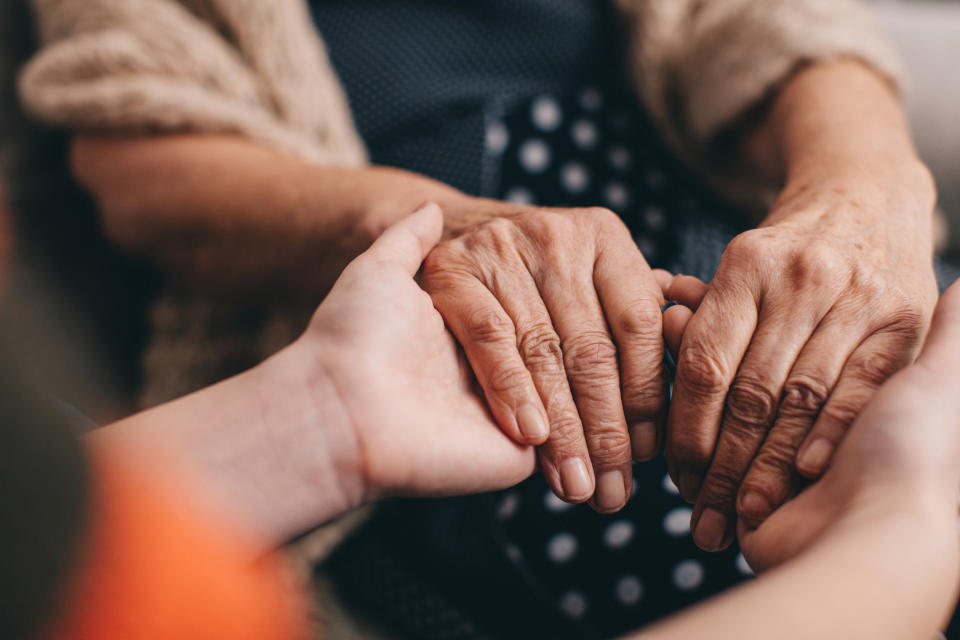
"If an elderly person gets a pulse back, they don’t recover like a younger person can. I commonly see them passing within a few days in much more pain. It’s traumatic for the patient, the family, and the healthcare workers that see it regularly. I’m not saying elderly people don’t deserve to have a chance at recovering from CPR, I’m just saying please talk to them about what THEY want in these situations before they can’t speak up."
4."I wish I knew how difficult organ donation can be. The people who handle the donation are supposed to take over any care costs once brain death is confirmed, but that doesn’t mean the hospital records it right. After my husband died, it took months and a legal threat before they fixed it."
5."It is very important to deal with paperwork of a dying person early. I know it’s a difficult subject to discuss with a loved one but once they are too far along you can’t go back. You need to have them sign car titles, home titles, wills, update any insurance forms. Doing paperwork early saves a lot of money and pain when they are confused and are unable."
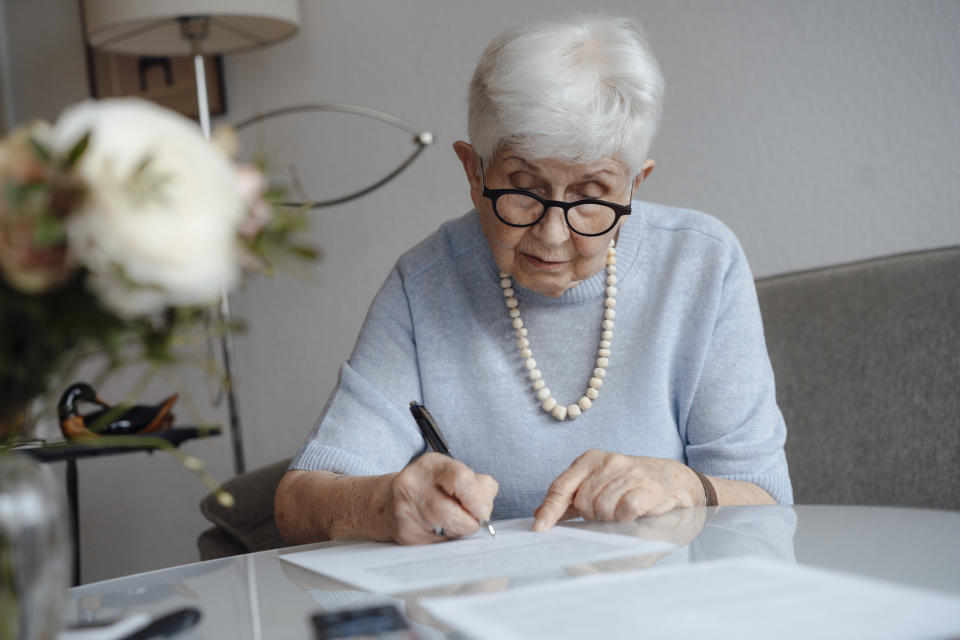
—Anonymous
6."ICU nurse here. I’ve seen many people pass away over the years. When a family chooses to take someone off the ventilator, we try to make the patient as comfortable as possible but we can’t over-medicate them either. Some people expect it to happen super fast, which does happen a lot, but sometimes the patient holds on and the families can find it uncomfortable to watch. Their breathing is always hard to watch. The death rattle is real and hard to listen to."
"I’ve also had families demand to stay in the room while I take the tube out—I do not recommend this. It’s very hard to watch. I try to explain all these things to families beforehand but it’s a very overwhelming time for them. It’s ok to not be there when they pass on—it can be too hard to watch for some and we don’t think any differently of you. You want to remember them how they were. We get that. And sometimes I swear they’re just waiting for you to leave so they can pass on. I firmly believe some of them don’t want you to see it. It’s not at all like you see on the TV shows."
—Anonymous
7."Death can have its moments of humor. My university roommate, who had cancer, died tragically young at almost 23. In her final days, there were a few occasions when they thought her time had come, but then she would rally back and take a deep breath. She did this a number of times, enough so that the hospice nurses said they had never seen anyone come back as many times as she did."
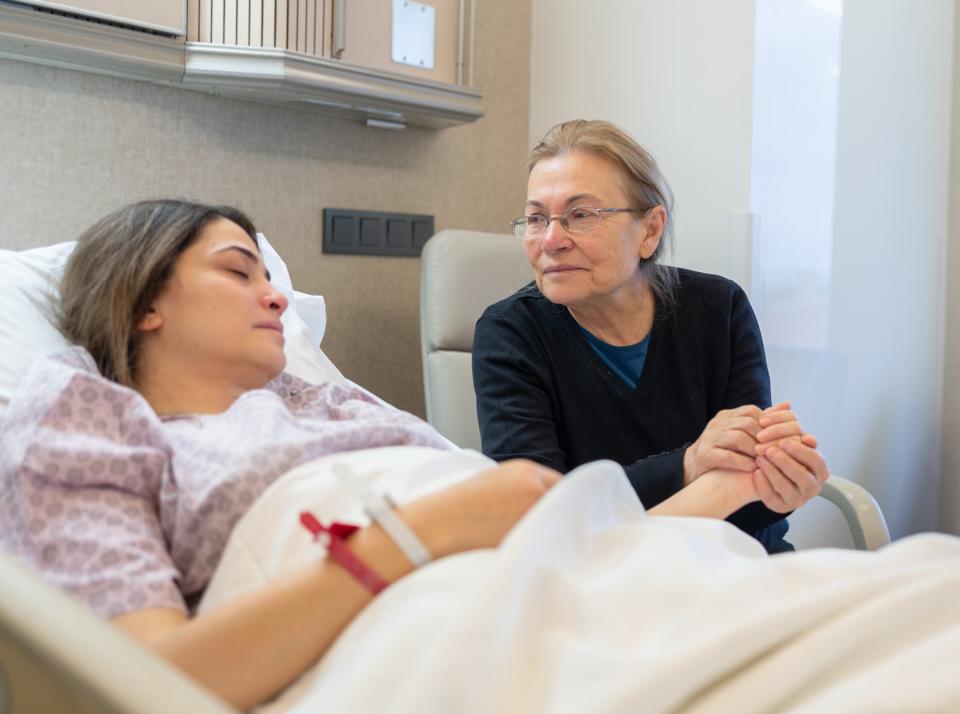
"Her mother turned to them and said, 'Well, this is just like her. She’s always been a bit dramatic.' Her brother swore he saw her give a faint smile when that was said."
8."How unexpectedly peaceful it was... Everyone had came to say their goodbyes within days of her arrival, so it was just us. I surrounded her bed and tables with pictures of family, her favorite sports team memorabilia, and the like. While she was unconscious for days at this point, we watched Moana—her favorite movie. I held her hand the entire time. Lit candles and other decor. Painted her nails. Rubbed her with her favorite lotion, Sweet Pea. I told her just how much I loved her and more—to be honest, I don’t remember all that was said as it was meant for her ears only, I suppose."
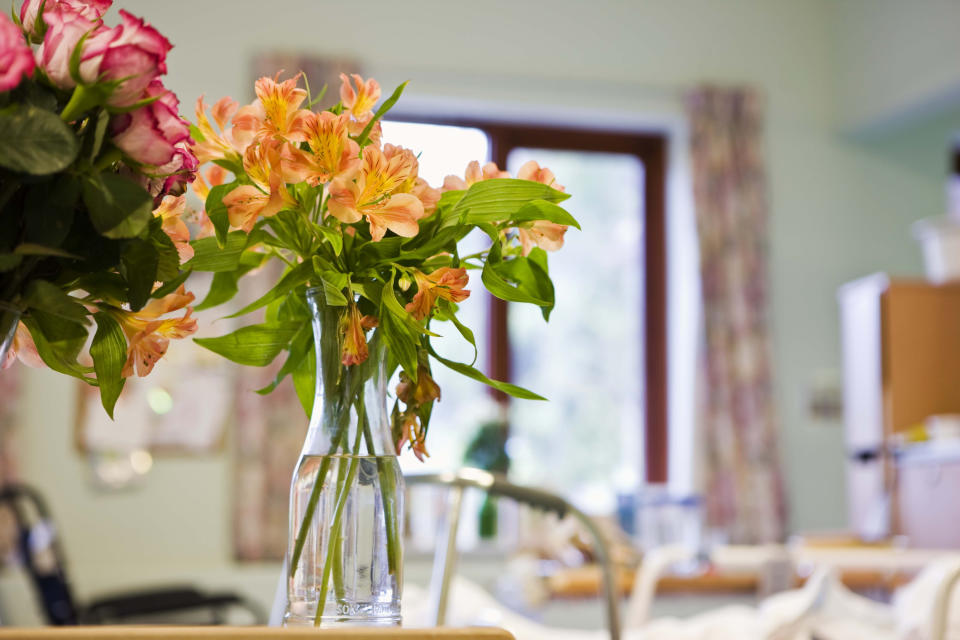
"I played her favorite music after the movie and she passed away when her favorite Josh Groban song played. I’m glad we had that time together and was kinda grateful it was just us. She was in pain most of the time. I had to squirt morphine down her cheeks. But her last day, she wasn’t in pain. She opened her eyes and silently looked at my children and me, then closed them for good."
9."How... anti-climactic it was going to be? My brother died at 18. As he was removed from life support, we were just kind of... sitting there until his heart stopped. We all were holding his hands, his arms, whatever, but there wasn't any dramatic BEEEEEEEEP like in movies or a doctor calling the time of death. It was very quiet and nothing much really happened beyond when we saw on the monitor that his heart stopped."
10."I’ll just say every death is different. My mom’s partner died and it was peaceful. She called out to relatives and passed away like going to sleep. My brother-in-law held on for hours and hours. The sun set, and my sister told him, 'You can go, the sun has set' and he literally died at the very moment."

"My dad however died over several days. He stopped eating, drinking, moving, and started sundowning. He would yell and scream as he sundowned each night, but otherwise was unresponsive. He rallied for a couple minutes the day before he passed to tell my sister happy birthday. He stopped going to the bathroom, his eyes turned blue, he had the death rattle, lots of fluids leaking out. It was very graphic and not nice at all. Not like the other deaths we had experienced."
11."I wish I knew that there is no 'appropriate' response to loss. How you react in no way reflects how much you care for and love that person. You also don’t have to validate your feelings to anyone. You can feel that pain weeks, months, and years later and that’s absolutely okay."
"I do, however, highly recommend you find resources—either trusted people in your life or professionals—to express yourself to because you do need a healthy outlet."
12."Talk to them about what they want before it’s the end. It can happen so fast and you need to be prepared to be their advocate. As their breathing gets slow, there might be a point where you think they’re gone but they aren’t. I watched it with my brother and with my dad. Also, they don’t need food or water. No one will give them any unless they ask for it. You don’t want to prolong their suffering longer than needed. It’s ok to give morphine. Let them have what they need. Advocate for them if you think they’re still suffering."
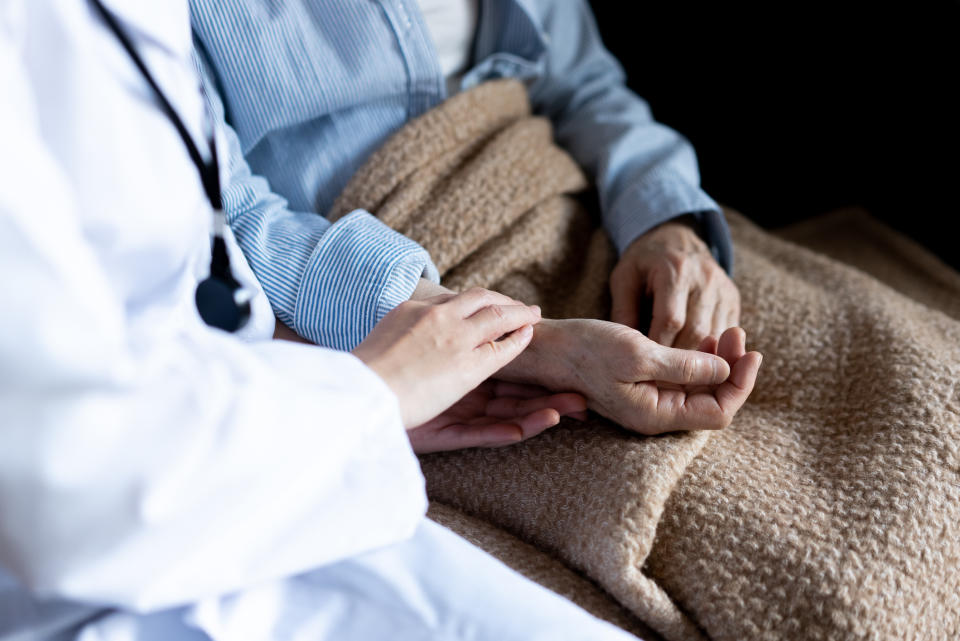
"...But be prepared, once the last stage morphine begins, that might really be the end. There may not be more conversations after that. But it’s for the best. Lean on hospice. They are truly angels and give so much love and care. I will forever be indebted. Finally, you’ll soon realize that there are people who have gone through this and people who haven’t. Those who haven’t will show love in ways they hope can be helpful. People who have can be your rock. Your relationships may change after a traumatic death, and that’s ok because you have changed too."
13."I never heard the 'death rattle' before and panicked. I wish I knew what it was and had been told to turn her on her side. In my moment of panic and shock with body fluids coming from her mouth I could hardly call the hospice nurse."
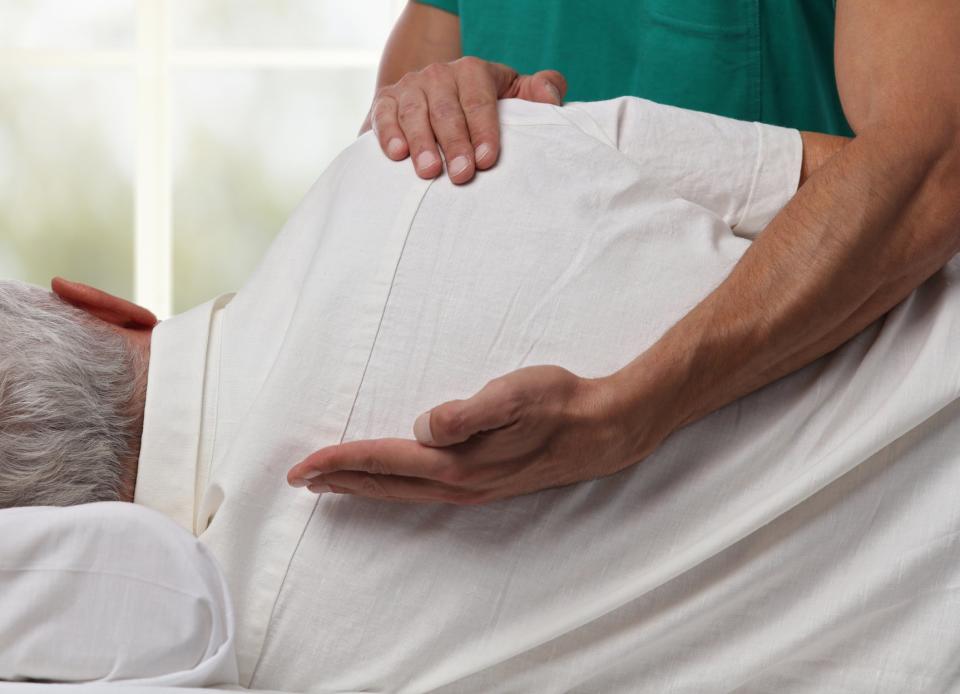
—Anonymous
14."I wish I had known about grimacing. My mother spent hours in a catatonic state then started making 'evil' and 'angry' faces at me and it scared the crap out of me and it was really emotionally upsetting."
15."Sometimes in the final days before death the patient experiences a big surge of energy which many people mistake as their loved one’s recovery. I witnessed my grandpa nearly motionless for days after struggling a long battle with Parkinson’s disease. He asked for a milkshake and surprisingly ate it after not eating for about two days. Immediately after he was sitting up, talking, and laughing with the family coherently like nothing had happened!"
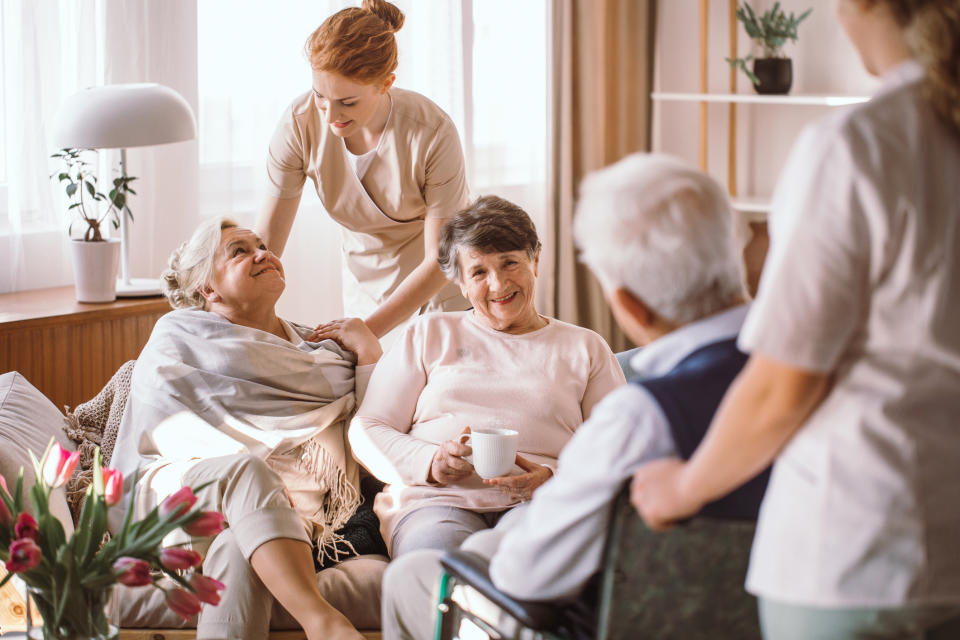
"Hours later he was back to laying down in his bed and he passed about one day after that, but I’ll always cherish those extra few hours we were able to spend with him. ??"
—Anonymous
16."The rally. The fucking rally. I wish I knew about it before experiencing it. It's absolutely heartbreaking and cruel when you don't know what is going on. But knowing about it now, I know that it can be utilized in a way to make for a very positive experience for all involved."
"I think another important thing to know is that it is perfectly OK to openly talk about the possibility of death with your loved ones. I spent so much time shielding my dad from any possibility of death, that I feel that I robbed him of his opportunity to make his peace with the idea. I should have given him the chance to say anything he wanted to say in preparation — make amends (although he didn't really have any amends to make), speak his love, tell his stories, speak about his fears, make final requests/preparations, etc. I'm often riddled with guilt that i accidentally took that right away from him."
17."If you choose to have someone cremated, they often need to be dressed in whatever they will wear during the process before their body is picked up. It’s one thing to see your loved one pass and have your time with them after (where it’s almost like they are sleeping). However, moving/handling the body can be a very traumatic experience."
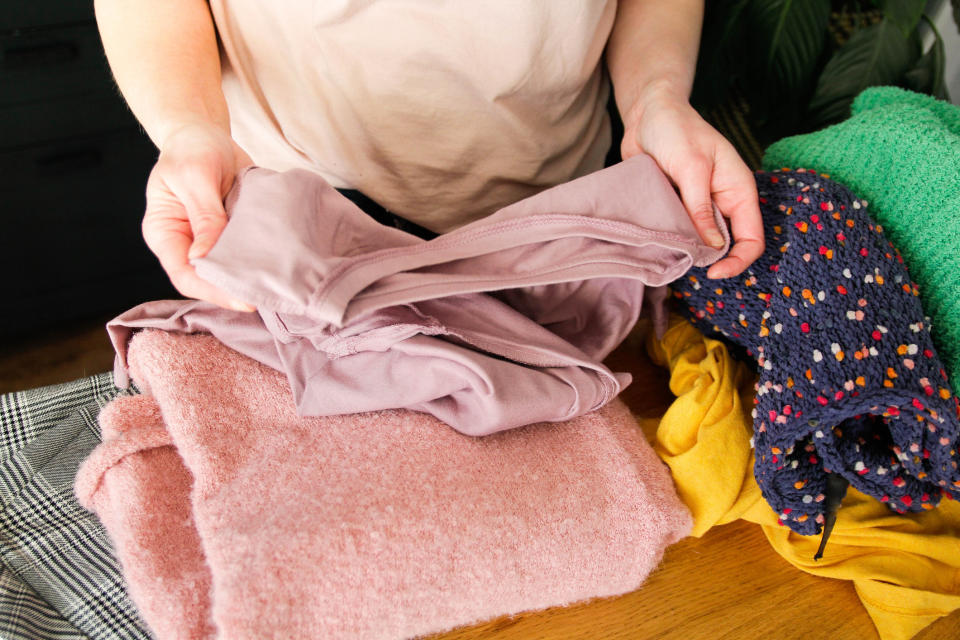
"If you know your loved one is close to their time, I recommend changing them beforehand. If you are doing a burial, typically you bring the clothes you want them to wear and they handle that for you."
18."I wish I knew how quickly it could all happen. My aunt was going to run errands after she had her weekly dialysis session and said she'd drop by afterwards to come see me. Something went wrong at the hospital and by the next afternoon, she was gone. It was like 'See you later!' but I never did. Things can happen so quickly."
19."I wish I'd known that many people have auditory, visual and/or tactile hallucinations. My mother was talking to people and pets that had been dead for decades or someone that never existed. A few years later, my father woke one night unable to speak and he also began to hallucinate and kept reaching for a glass of water that wasn't there. Both of these events were extremely traumatizing to see firsthand. It was like someone else suddenly had control of them and they heard nothing said to them."

—Anonymous
20."When you take someone off life support it isn't a beautiful and peaceful death. My sister had an aneurysm in 2010 and they took her off life support the next day. They didn't tell us that she would continue to try to breathe for 30 minutes and that she would gasp and struggle and buck and basically seem to be in the worst possible pain."
"It seemed to us, and especially my mother, that she was trying to survive and that we were watching her be murdered. My mother screamed and pulled a nurse in and the nurse was so flippant about it when she said that almost always happens. It was the hardest 30 minutes of our lives and I will NEVER feel okay about that decision."
21."Something I'm glad I learned before I found out the hard way is that ashes are not pure ash. There are small pieces of bone and sometimes even teeth still intact. My former mother-in-law spread her parents' and her first husband's ashes and that discovery was very distressing to her."
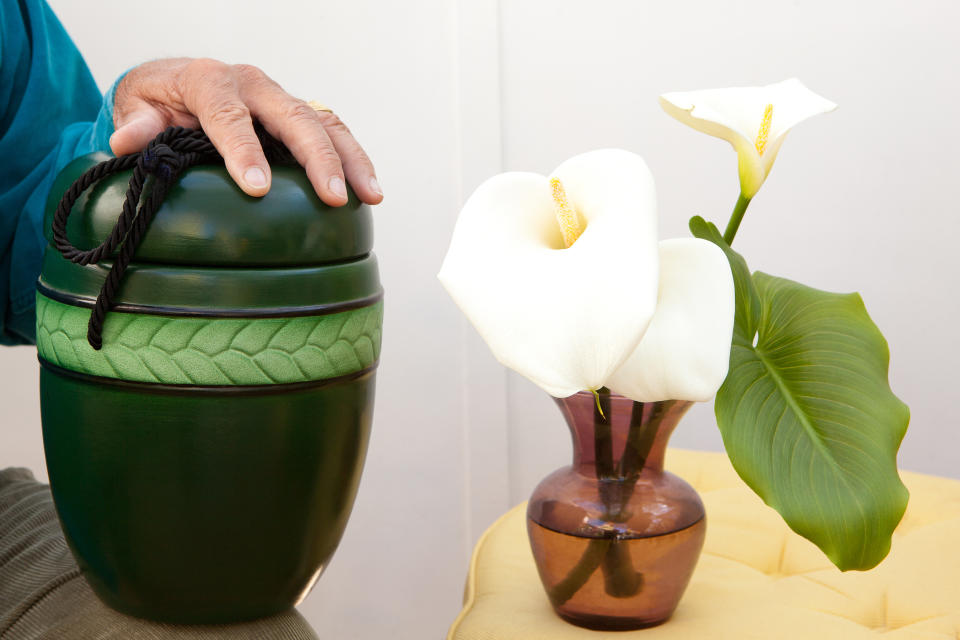
"...Being cremated does not turn everything to ash. Anything left behind is put into a grinder and turned to 'ashes.' Some crematoriums do a better job with this part than others. This is not to discourage anyone, but I feel some people may benefit from knowing what cremation entails so that they can be prepared and do not end up with any distressing surprises."
22."I was with my dad when he passed in the hospital. I supposed that nurses would cover his body and wheel his bed out of the room, but it was the opposite: our family had to leave the room first. Walking away from my dad was a shock and felt like I was abandoning him. I believe he is at peace, but it was upsetting for me at the time."
—Anonymous
23."As much as you prepare, sometimes you won't be ready. I did not realize that even though they may have a pulse, they still need a blood pressure to move the oxygenated blood to the body. I did not know that and was happy for a pulse during death but wish I had known about the blood pressure."
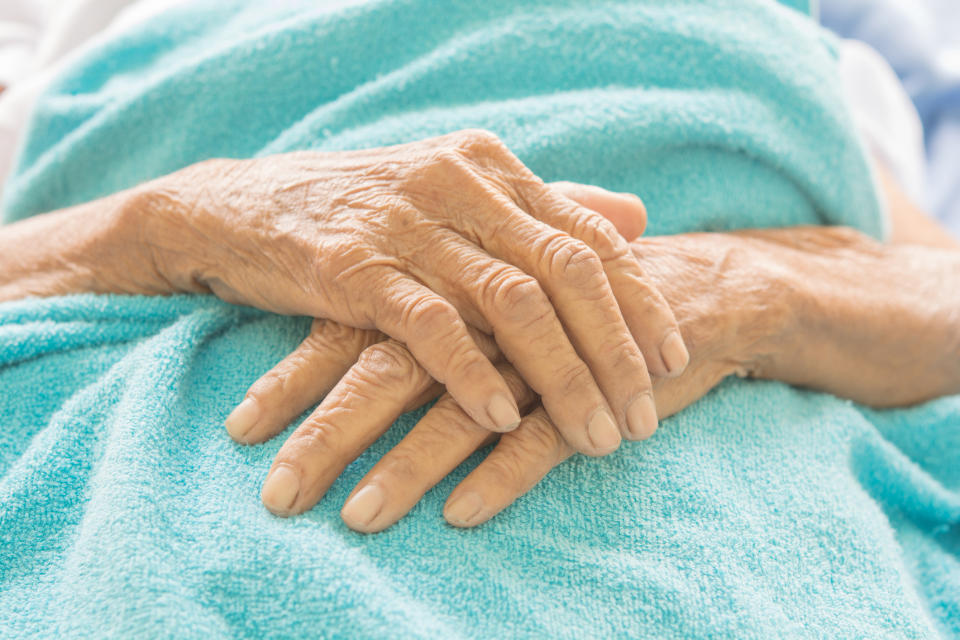
"Take as much time as you want with your loved one after. After embalming, they do not really look like themselves, except for the hands. That helped me get through the funeral."
—Anonymous
24."I went home to visit my parents two weeks before my dad died. My dad had been slowly declining over the past two years, but there was no indication whatsoever that he would pass in two weeks time. As I was saying goodbye to my dad to go to the airport, my dad started to cry and begged me to stay for the week. I work remote but I didn't have my work computer with me, and I have a cat, so I didn't feel prepared to stay. It was so busy with work that I figured I'd go in the new year. Less than two weeks later I rushed home because my dad was placed on hospice and had days left."
"The drastic decline, literally overnight, shocked everyone. It might sound silly but I thought we had more time. I know everyone dies, but I didn't think my dad would die. I thought he'd live forever. I had over seven weeks of PTO. I could've stayed for the week when my dad asked. I could've gotten a cat sitter. I could've had that week with my dad. I didn't have all the time that I thought we had. Watching him go through the dying process was the most excruciatingly painful thing to witness and longest four days of my life. But after he passed, it felt like those four days were the fastest four days of my life."
—Anonymous
25."The people close to the person who is dying are going to go through so many phases of grieving before the person is even gone. The person who is sick has to manage so many other people's emotions. If you've lost multiple loved ones it can actually get tiring to watch others go through it for the first time, but it's also your chance to step up and help them through the process, which can actually be more useful for the person who is sick than anything else you could do."
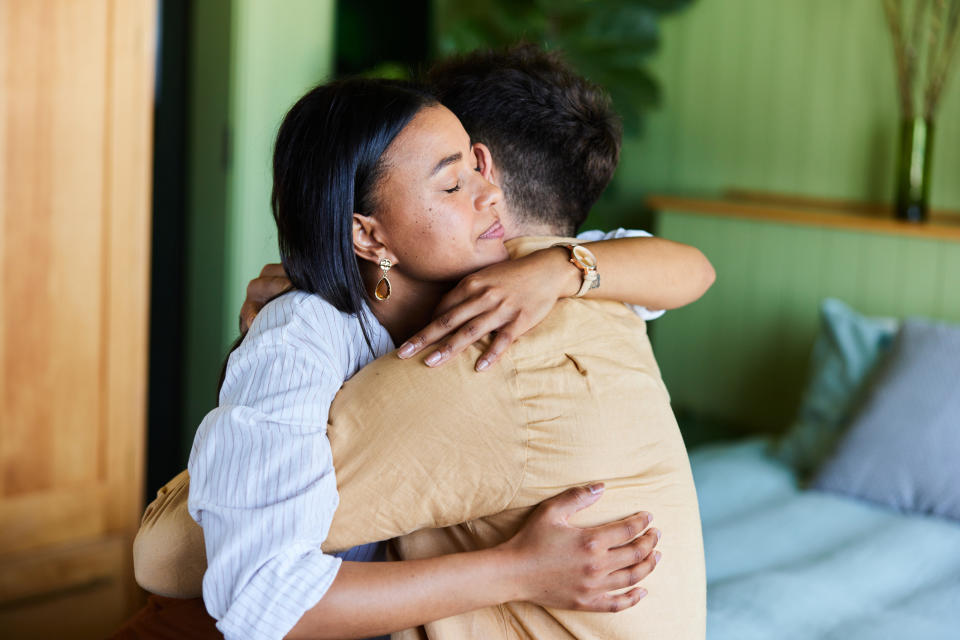
—Anonymous
26."No matter how much you may try to emotionally prepare yourself for seeing someone pass away if you know it's coming, you may still find yourself overwhelmed and unable to handle that final moment."
"When my mum passed away, in her final minutes I started shaking and having a panic attack, and had to leave the room. She was gone by the time I came back. I felt bad, like I'd abandoned her in her final moment, but eventually I accepted it was too much for me, and it would have done no one any good to force myself through it."
—Anonymous
27."My mother died at the age of 101. I knew it was time. But at the end I still wasn’t ready for the depth of the grief I experienced. I think I was trying to 'pre-process' my grief and expected an easier path. It’s been four years and there are still aspects of her death I deal with. I wish I knew my grief couldn't really be processed ahead of time."
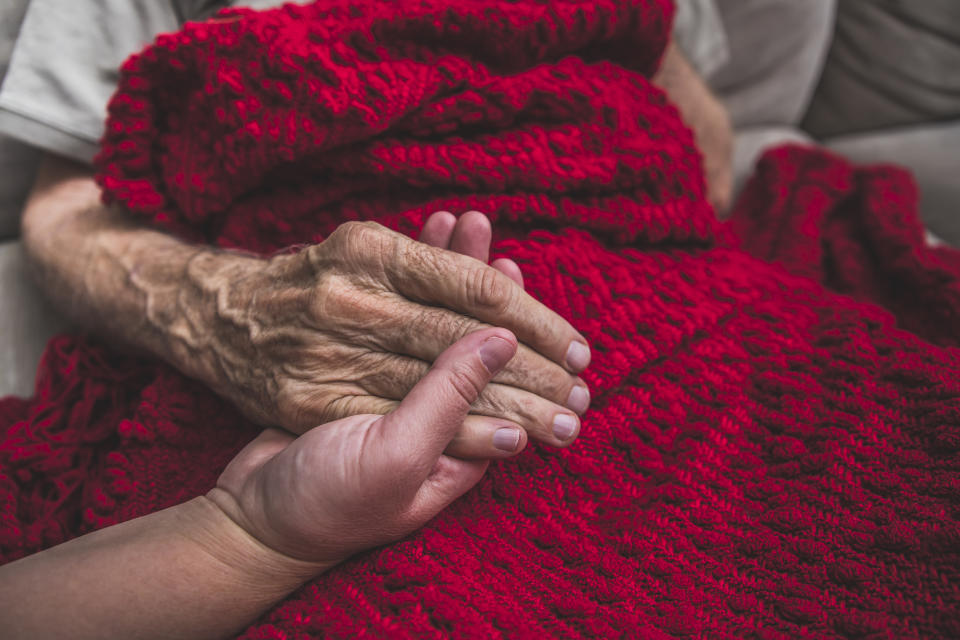
—Anonymous
28."Be prepared for the fact that your loved one's appearance while actively dying can be upsetting. To be blunt, my mother looked like a corpse long before she died, and my sisters and I were grateful that many people were unable to see her in that state. Their final memories of her will be ones when she was still conscious, lively, and laughing."
—Anonymous
29."My husband passed peacefully in hospice care. They were so caring and kind to him and me. BUT I didn’t realize that once they started his medication for end-of-life care, he and I would never get to speak and understand each other again. Probably my fault I didn’t understand what the nurses were telling me about his medication. But my biggest regret is not saying and him understanding some loving words that I wanted to say before he passed."
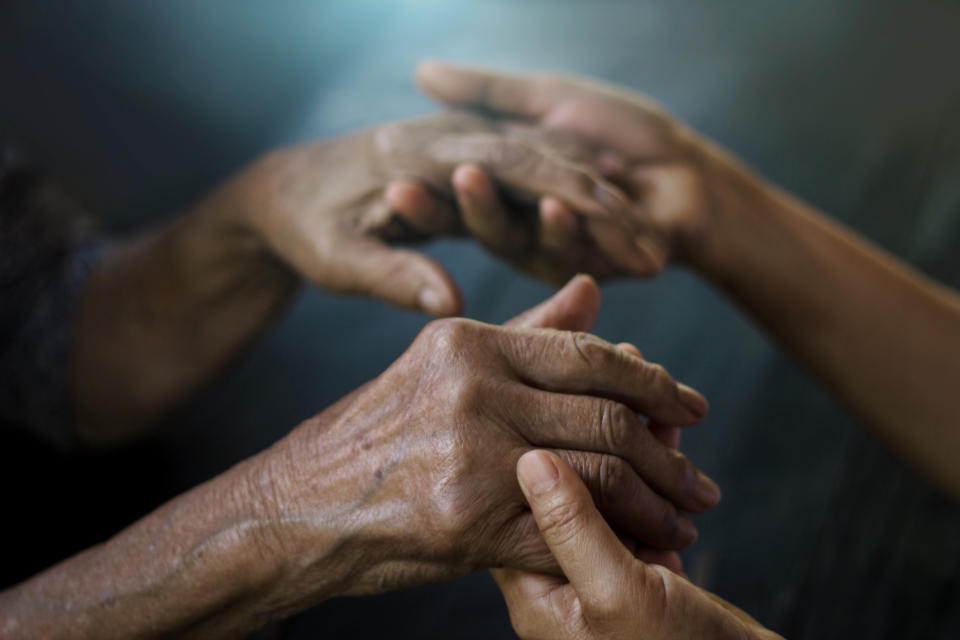
—Anonymous
30."I wish I knew about the long pauses between breathing until the final breath. When my family member was in his final moments his breathing became more shallow and occurred at longer intervals than normal. He would take a breath then 20 seconds would go by, then another breath, then 30 seconds, and so on until he finally just took one last big breath."
—Anonymous
31."I wish I would have known that people you have known your entire life may surprise you in the most awful ways. My aunt selfishly made the final moments of my loved one all about her, while my uncle wasn't around for us. Their reactions completely shook me to my core and made me question everything that I thought I knew about family and love."
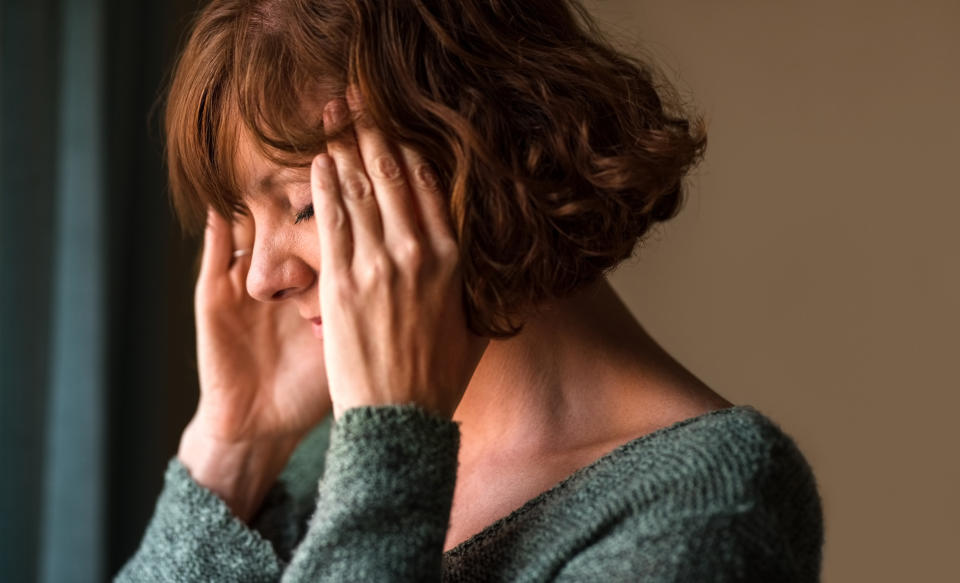
—Anonymous
32."I wish I knew about terminal restlessness. That someone very near the end of life might want to run, perhaps as if they can leave the situation (hospital bed, house) to avoid the inevitable. In a home hospice situation, this can be hard for caregivers and loved ones to manage."
—Anonymous
33."Accepting someone is dying isn't giving up on them. My brother felt a lot of pressure to get his wife to eat when she had throat cancer and she just couldn't keep food down. A relative who is a nurse finally told him 'the cancer will kill her,' which sounds cruel, but it flipped a switch in him. It helped him accept that they only had a little bit of time together, and it was better to help her be comfortable. An extra spoonful of oatmeal wasn't going to save her."
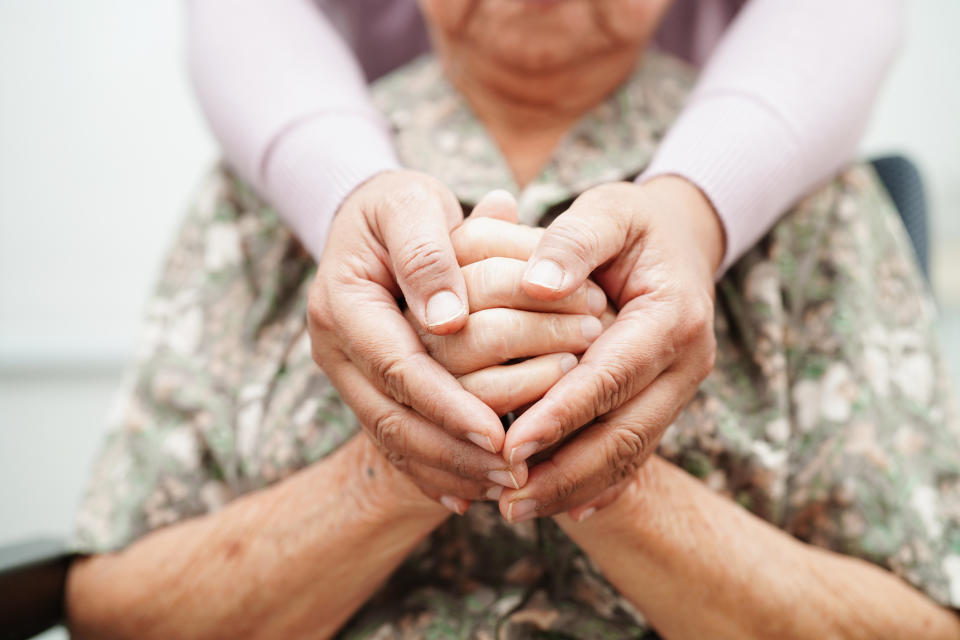
—Anonymous
34."You can spend every day and night by their side, but that just means the sick person has to watch you struggle and suffer, and how many of us want to die watching our loved ones suffer? Pace yourself. Take shifts. Also look after yourself. Communicate with work. Bring in a nurse. Get assistance."
—Anonymous
And lastly:
35."I took care of my mother-in-law for the last four weeks of her life. It’s one of the things I’m most proud of doing in my entire life but I’m just now dealing with undiagnosed PTSD. I wish that I would have understood back then that we did everything we could to make her comfortable and feel loved. I wish I talked about how I felt and not pushed down my grief."
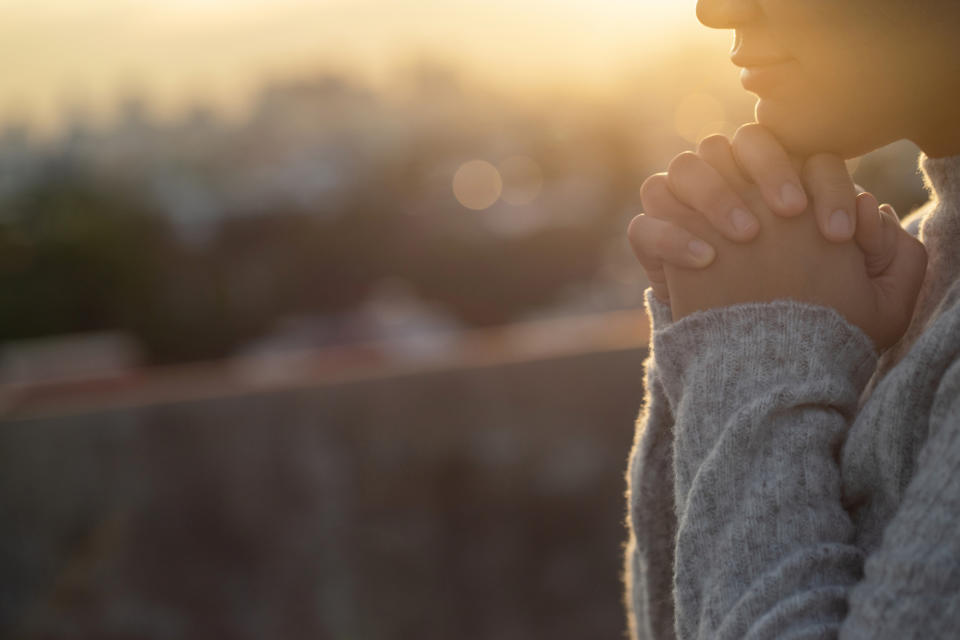
"I’ve spent five years torturing myself for things out of my control and I have a feeling that, while I know she’d be proud of me and who I’ve become, she would be furious that I didn’t take care of myself. Be kind to yourself through the process, you remain living after they are gone."
—Anonymous